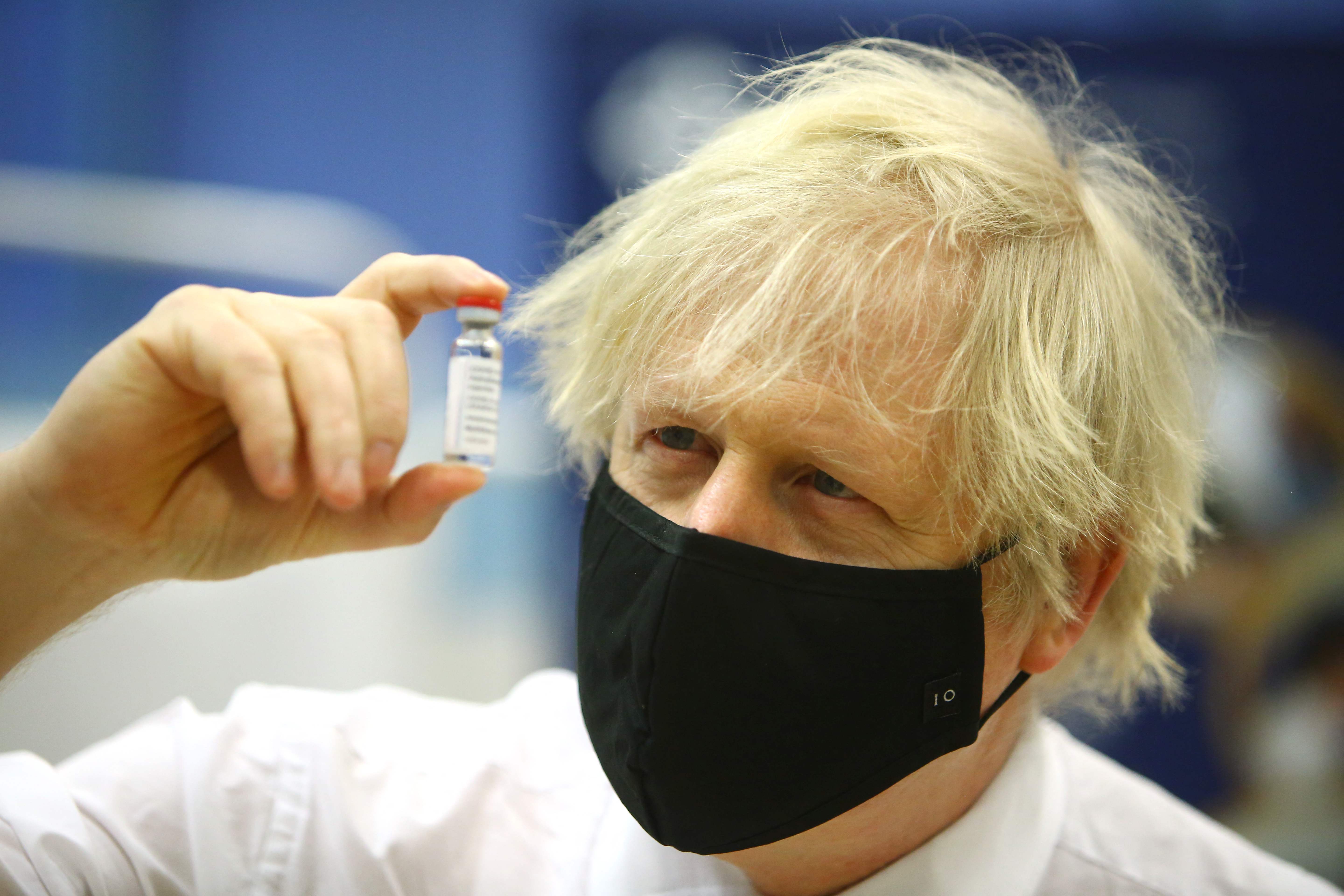Unwinding lockdown ‘too fast’ risks ‘disaster’, warns government scientific adviser
Full return to how society was before pandemic struck ‘quite unlikely’, Dame Angela McLean suggests

Your support helps us to tell the story
From reproductive rights to climate change to Big Tech, The Independent is on the ground when the story is developing. Whether it's investigating the financials of Elon Musk's pro-Trump PAC or producing our latest documentary, 'The A Word', which shines a light on the American women fighting for reproductive rights, we know how important it is to parse out the facts from the messaging.
At such a critical moment in US history, we need reporters on the ground. Your donation allows us to keep sending journalists to speak to both sides of the story.
The Independent is trusted by Americans across the entire political spectrum. And unlike many other quality news outlets, we choose not to lock Americans out of our reporting and analysis with paywalls. We believe quality journalism should be available to everyone, paid for by those who can afford it.
Your support makes all the difference.Unwinding the national lockdown “too fast” would risk a “disaster”, a government scientist has warned as she urged caution with many yet to receive Covid vaccines.
Dame Angela McLean — a member of the government’s Scientific Advisory Group for Emergencies (Sage) — made the remarks as Boris Johnson prepares to unveil the government’s roadmap for lifting restrictions next week.
The prime minister stressed on Wednesday that the government’s strategy would be based on a “cautious and prudent approach”, reiterating he wanted the move out of lockdown to be “irreversible”.
Appearing at the Commons Science and Technology Committee, Dame Angela, who also serves as chief scientific officer at the Ministry of Defence, said the country “got into real trouble” in 2020 for not being cautious enough.
She told MPs that while cases were falling alongside hospitalisations and deaths, “we still stand with a high number of infections”.
The government scientific adviser added: “I think we can say very, very clearly, don’t unlock too fast because if you unlock a lot while a lot of the most vulnerable are still unvaccinated, genuinely we risk disaster frankly.”
“I think none of us want a situation where there is a wave of infection mostly amongst people who are not terribly [vulnerable] but that spills over into deaths and very serious illness that is very focused on some bits of society.”
“I’m not being gloomy, I’m being cautious. I think it is correct to be optimistic and cautious. In 2020 we got into real trouble on several occasions when we were not cautious enough.”
Pressed by MPs at the committee whether the R level of transmission needed to be a certain level before lockdown can be eased, Dame Angela said: “I think the timing is probably more important, it’s how many of the people who are more at risk of – that’s a mixture of old people or people with underlying conditions – have been vaccinated before we do more unlocking.
“The important issue is to really watch very closely what is happening, so that if infections start to increase and that we do everything we can to decide whether it is a good moment to take another step in unlocking. Let’s use data, not dates.”
Dame Angela also suggested it was “quite unlikely” for a full return to how society was before the pandemic struck, claiming: “There are things we used to do that I suspect we won’t do anymore. I suspect we just won’t go to work if you have a respiratory illness.”
Pressed on whether this should be mandated, she replied: “It would be most powerful if it simply became socially unacceptable to go to work with a cough.”
Earlier, the chief executive of NHS providers Chris Hopson suggested the number of coronavirus infections needs to plummet under 50,000 before the prime minister can consider easing the national measures. The most recent figures show that 695,400 people in England had Covid in the week ending 6 February.
Mr Hopson’s organisation has set out four “tests” which should guide easing: getting case numbers down, reducing pressure on the NHS, further strides in the vaccination programme and an effective strategy to control future outbreaks.
“If you look at where we are against those four tests, each one of them tells you that we’re still some way away from being able to start relaxing restrictions,” Mr Hopson told BBC Radio 4’s Today.
“We had 500 Covid patients in hospitals in September and yet, 15 weeks later, we had 34,000 patients, and we were perilously close to overwhelmed.
“So, what that says to you is that you just need to be really careful before you start relaxing the restrictions prematurely.”
Mark Woolhouse, a professor of epidemiology at the University of Edinburgh, also told the committee on Wednesday that the data is pointing to “earlier unlocking”, adding: “I completely agree that we don’t to be overly focused on dates, not at all.
“We want to be focused on data. But the point I’d make is the data are going really well. The vaccination rollout is, I think, exceeding most people’s expectations, it’s going very well.”
“The transmission blocking potential [of vaccine] is key. But so, of course, is its actual ability to protect against death and disease, and to keep people out of hospital, and those numbers are looking really good. My conclusion from that is if you’re driven by the data and not by dates, right now, you should be looking at earlier unlocking”.




Join our commenting forum
Join thought-provoking conversations, follow other Independent readers and see their replies
Comments